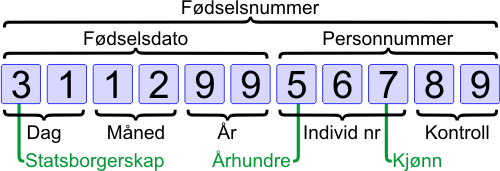Generally very little has changed in a long time employment wise, my temporary job was extended to an open contract which had several interesting implications. Originally as I only had a temporary contract I was only given a temporary birth number (NI number or social security number equivalent). This made getting a bank and several other things rather tedious so I'm now very pleased to have a proper perminant one which I will keep forever. It certainly helps with the whole "feeling of belonging" thing. I should also say however that although I have no official end date, my hours are very irratic and inconsitent and I could be told at any time that I am no longer needed. Not exactly the nicest way to live I must say and also very restricting as we cant commit to buying a house or anything. I am still tirelessly searching for something new, perminant and maybe actually using some of my skills, but until such a time I must just be greatful for this oportunity to make some money.
This is an example of a Norwegian Birth number. The first six letters are your date of birth (day/month/year) and then random numbers. The English system involves letters too and there is talks of bringing that in in Norway as they are running low on combinations.
The language, that old chestnut. Well actually I have felt like I've been progressing really well recently. I have a textbook I read very regularly and I think has helped a lot. Its quite a hard one to get into as its an international book for anyone learning Norwegian not just English and therefore has no English in it just all Norwegian. I still have not had the finances to invest in a language course so practicing more and more with friends and at work etc.
I can often get very frustrated by others in their reaction to my learning and their opinoin on what is an acceptable amount I should know and what I should or shouldnt already understand. The truth is that although I still have a long long long way to go, I am actually progressing well and I understand so much more than people give me credit for. At the same time though I cant make too much of a point of this because then people will expect me to understand everything! Which I just cant yet! An example of this is a new work collegue who Ive spent a lot of time with recently started to notice how much I followed in Norwegian and decided (despite him speaking better English than most others I work with) that he would only talk to me in Norwegian so I can practice more. This has actually proved more successfull than I would have thought and Im often surprised by how comfortable I am. Other times though it can be incredibly tedious and I start to feel very stupid when I start to struggle several times in a short space of time and keep having to ask him to repeat or translate.
The thing here is no one can win really, people cant know exactly what it is I know so all the time they are going to assume I either dont or do understand certain things. Of course actually this is no ones fault really. In fact actually its my own because I can at times get very aggitated when someone translates something I understood and then equally aggitated when I cant follow something. Its very silly of me but I cant help hating looking stupid and this is going to happen constantly and I just have to accept it. Most of the time most people are very patient with me and are really helping me develop so Im incredibly greatful to them.
Speaking Norwegian is something I have to address entirly seperatly as I do this very rarely. Largely only to my girlfriend Marianne and her family (especially her young neices who I feel more comfortable making a muppet of myself in front of) and then in shops and restaurants and stuff. As a rule of thumb if I know what the conversastion is about, like ordering food or the little chit chat I know I have with Marianne then I can respond quickly as Im prepared. Its almost like a get the cheat sheet of words ready to construct a sentance in my head. When people at work or something though talk to me in Norwegian I have no idea what to expect and even though I might understand fine I naturally instantly reply in English. If I were to pause and translate a response then they would assume I didnt understand and then repeat the question in English, making it look is if I didnt understand when I did, which as I mentioned really bugs me. Does any of that make sense? who knows? I hope so.
Saffice to say I just need to keep going and be calm and patient. Given the iraticness of many other parts of my life here this is not always the easiest task but I am managing and must continue to do so.
Saffice to say I just need to keep going and be calm and patient. Given the iraticness of many other parts of my life here this is not always the easiest task but I am managing and must continue to do so.
This is the book I am using. I have not seen others so I can really compare and give a proper review but I would reccomend it.



